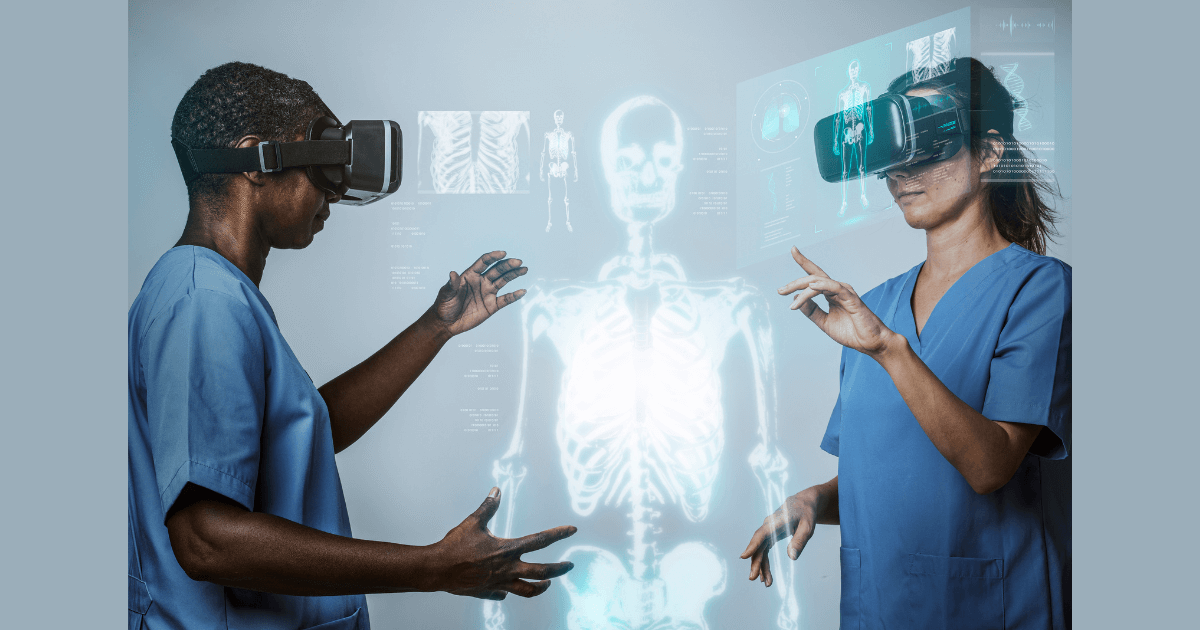
AI’s Quantum Leap into the Realm of Medical DiagnosticsAI’s Quantum Leap into the Realm of Medical Diagnostics Artificial intelligence (AI) is revolutionizing the healthcare industry, and its impact on medical diagnostics has been profound. AI algorithms are capable of analyzing vast amounts of medical data, identifying patterns and anomalies that may be missed by human doctors. This has led to significant advancements in the accuracy, efficiency, and personalization of medical diagnostics. Enhanced Diagnostic Accuracy: AI algorithms can analyze medical images, such as X-rays, CT scans, and MRIs, with exceptional detail and accuracy. They can identify subtle abnormalities that may be overlooked by human eyes, leading to earlier and more accurate diagnoses. For example, AI-powered systems can detect early signs of cancer, heart disease, or neurological disorders with a high degree of sensitivity and specificity. Increased Efficiency: AI streamlines the diagnostic process by automating repetitive and time-consuming tasks. Algorithms can interpret medical data, generate reports, and suggest diagnoses in real-time, freeing up doctors’ time to focus on patient care. This efficiency allows for faster turnaround times and reduces the burden on healthcare professionals. Personalized Diagnostics: AI enables the creation of personalized diagnostic models that take into account individual patient characteristics. By analyzing patient history, genetic data, and lifestyle factors, AI can tailor diagnostic tests and predictions to each person’s unique health profile. This approach improves treatment outcomes by providing more accurate and patient-specific diagnoses. Precision Imaging: AI enhances the capabilities of medical imaging technologies, such as ultrasound and endoscopy. AI algorithms can process images in real-time, providing doctors with enhanced visualization and enabling them to make more precise diagnoses during procedures. For example, AI-guided endoscopy can improve the detection and removal of polyps during colonoscopies. Challenges and Considerations: While AI holds immense promise in medical diagnostics, there are still challenges to address. These include: * Data Quality and Bias: AI algorithms are only as good as the data they are trained on. Poor-quality data or biases in training sets can lead to inaccurate or unfair diagnostic outcomes. * Interpretability: It is often difficult to understand the inner workings of AI algorithms and how they arrive at diagnoses. This lack of interpretability can make it challenging for doctors to fully trust and integrate AI into their clinical practice. * Ethical Concerns: The use of AI in medical diagnostics raises ethical questions about privacy, informed consent, and the allocation of healthcare resources. It is essential to establish clear guidelines and regulations around the use of AI in this sensitive field. Conclusion: AI is transforming the realm of medical diagnostics by enhancing accuracy, efficiency, personalization, and precision. As AI continues to evolve, it has the potential to revolutionize healthcare delivery by enabling earlier detection, more accurate diagnoses, and personalized treatments for all patients. By addressing the challenges and ethical concerns associated with AI, we can unlock its full potential and improve the health outcomes of countless individuals worldwide.
Posted inNews